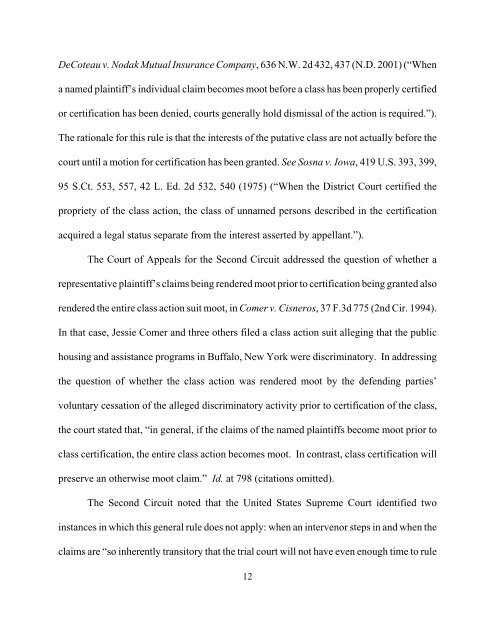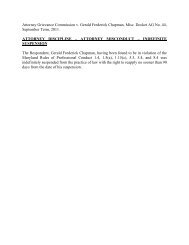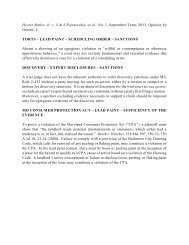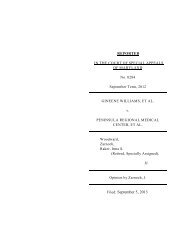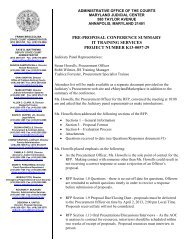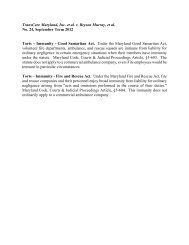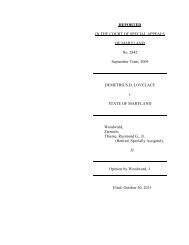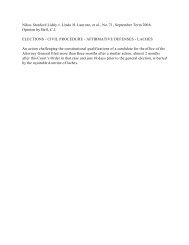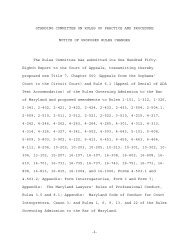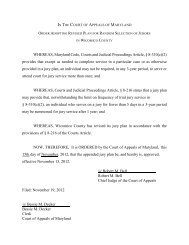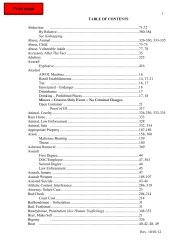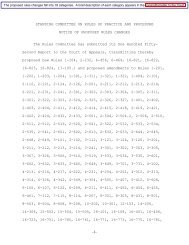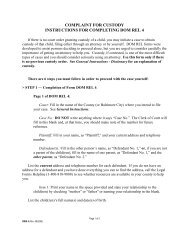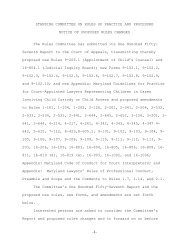Anthony M. Frazier v. Castle Ford, Ltd., f/k/a ... - Maryland Courts
Anthony M. Frazier v. Castle Ford, Ltd., f/k/a ... - Maryland Courts
Anthony M. Frazier v. Castle Ford, Ltd., f/k/a ... - Maryland Courts
You also want an ePaper? Increase the reach of your titles
YUMPU automatically turns print PDFs into web optimized ePapers that Google loves.
DeCoteau v. Nodak Mutual Insurance Company, 636 N.W. 2d 432, 437 (N.D. 2001) (“When<br />
a named plaintiff’s individual claim becomes moot before a class has been properly certified<br />
or certification has been denied, courts generally hold dismissal of the action is required.”).<br />
The rationale for this rule is that the interests of the putative class are not actually before the<br />
court until a motion for certification has been granted. See Sosna v. Iowa, 419 U.S. 393, 399,<br />
95 S.Ct. 553, 557, 42 L. Ed. 2d 532, 540 (1975) (“When the District Court certified the<br />
propriety of the class action, the class of unnamed persons described in the certification<br />
acquired a legal status separate from the interest asserted by appellant.”).<br />
The Court of Appeals for the Second Circuit addressed the question of whether a<br />
representative plaintiff’s claims being rendered moot prior to certification being granted also<br />
rendered the entire class action suit moot, in Comer v. Cisneros, 37 F.3d 775 (2nd Cir. 1994).<br />
In that case, Jessie Comer and three others filed a class action suit alleging that the public<br />
housing and assistance programs in Buffalo, New York were discriminatory. In addressing<br />
the question of whether the class action was rendered moot by the defending parties’<br />
voluntary cessation of the alleged discriminatory activity prior to certification of the class,<br />
the court stated that, “in general, if the claims of the named plaintiffs become moot prior to<br />
class certification, the entire class action becomes moot. In contrast, class certification will<br />
preserve an otherwise moot claim.” Id. at 798 (citations omitted).<br />
The Second Circuit noted that the United States Supreme Court identified two<br />
instances in which this general rule does not apply: when an intervenor steps in and when the<br />
claims are “so inherently transitory that the trial court will not have even enough time to rule<br />
12


